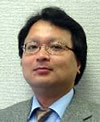Coexistence and Exclusion
There are people who are handicapped, have lost their jobs, or are otherwise out of touch with society. They have been pushed out of society bit by bit, and have found themselves locked into their circumstances with no way out. The term “convivial society” is bandied all over the world, and is now commonplace. With each loud cry for the necessity of coexistence, I feel that we have yet to realize a convivial society. On the other hand, whenever I hear the term coexistence I feel somewhat uncomfortable, undoubtedly because I reject the values that it conjures and object to its vagueness. In the society in which we live there are numerous opportunities for discriminatory or exclusionary treatment. This in and of itself is not always bad; there are many cases in which it can be justified. Nevertheless, how would it be if discrimination became unjust exclusion? Unjust exclusion is being covered-up in this world. The people who made the systems and structures of the world did not have exclusion in mind, but it still continues, and is being ignored and swept aside. Even when no malice is intended, exclusion continues. Most exclusion happens to minorities, and it occurs because society cannot handle individuality.
The Viewpoint of the Science of Human Services
There is an essence and structure of our society that creates a tendency to unwittingly exclude people. We need policies to prevent this, and furthermore we need a way for patients who have been excluded to easily rectify the situation. What sort of approach is needed to solve this problem? One attempt to find an answer is the Science of Human Services program offered by Ritsumeikan University’s HSRC. The Science of Human Services program has set itself the goal of helping patients to coexist or blend unburdened into society. It advocates that assistance is “the individualized support for independence that respects the wishes of the individual.” This approach adopts the attitude of “confronting individuality”. If we aim to connect these activities with societal improvements, it is likely to lead to some form of systemization or a new method. Through the process of systematization, there is a tendency to break aid recipients into categories and lump them together, which naturally has the possibility of depriving people of their individuality. It goes without saying that it is difficult for any conduct that conflicts with individuality to exist under such a system. The challenge facing Ritsumeikan University’s HSRC is to boldly address just that sort of difficulty and shape human service activities into the “science of human services”. Promoting academic research on this theme requires the cooperation of researchers, assistance professionals, and non-assistance professionals. Furthermore the continued reciprocity between actual field practice and research is indispensable. Finding ways to promote this kind of research is both an ambitious and unique challenge.
Towards a Flexible Society
Our vision of human services is merely looking at the way in which society treats people. This relates to our individual roles, society’s strengths and weaknesses, and societal sustainability. For example, the phrase “coming of age”, which is used to refer to someone who can fulfill his or her role in society without assistance. Most of us are required to enter adulthood by our families and society, and grow up learning this. However, through emphasizing the concept we run the real risk of lumping together people who have not “come of age”. Whenever we speak positively about coming of age, not coming of age therefore takes on a negative meaning. Thus, our society is one where, as soon as we come of age, the role we take on becomes harder to shed. People who have shed this role are often treated as odd and not tolerated by society and organizations. The reason we display this attitude is because of our unease at foreign things, our uncertainty at changes in status and other societal relationships, and the constraints brought about by concerns for cost management and economic efficiency. In the future, we run the risk of our society becoming vulnerable to the uniform treatment of people and not recognizing different lifestyles and possibilities. But, isn’t a society that takes a flexible attitude in understanding each person’s uniqueness actually a stronger, more tolerant society? Flexible and strong ? this is the kind of society we should envision. The achievements and endeavors of the science of human services are to review our rigid society that tends to be intolerant of individuals and become the driving force behind designing a flexible society.

FROM JAPANESE RESEARCHER
 |
Saburo OGATA |






